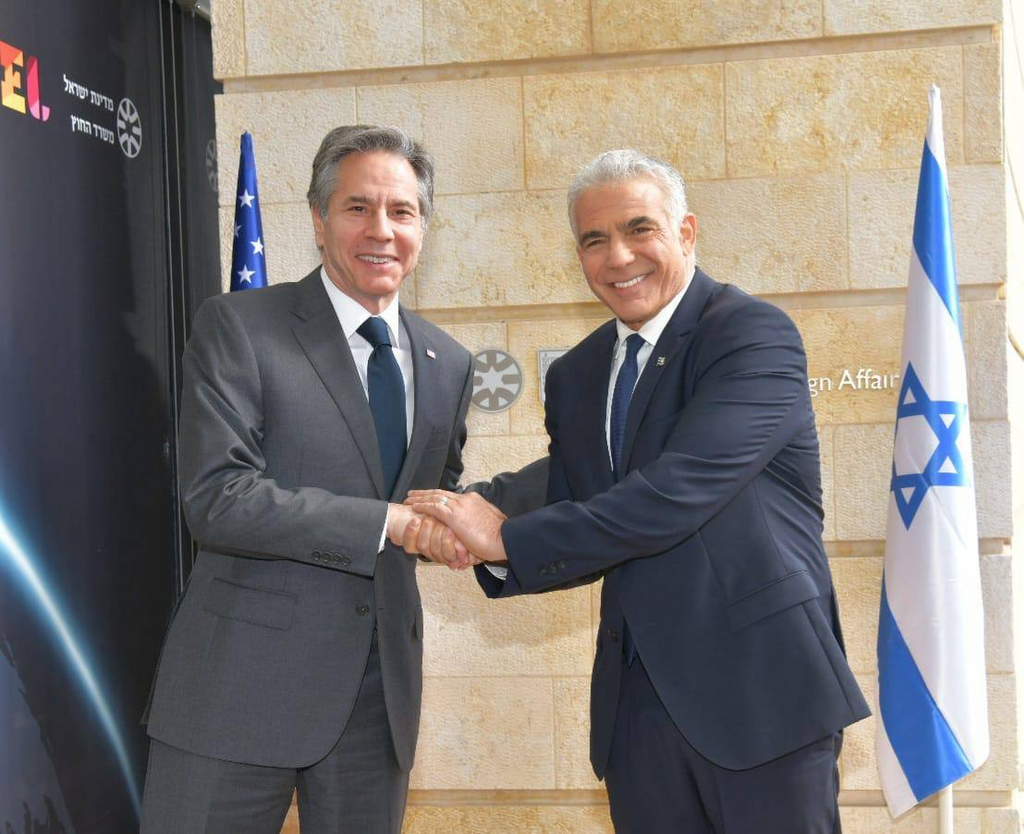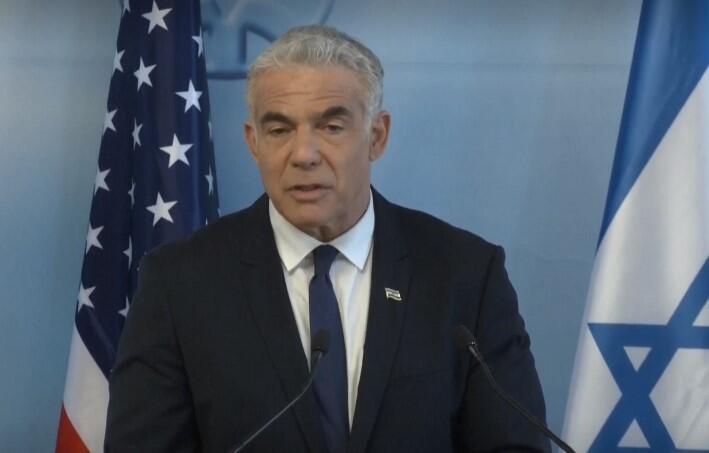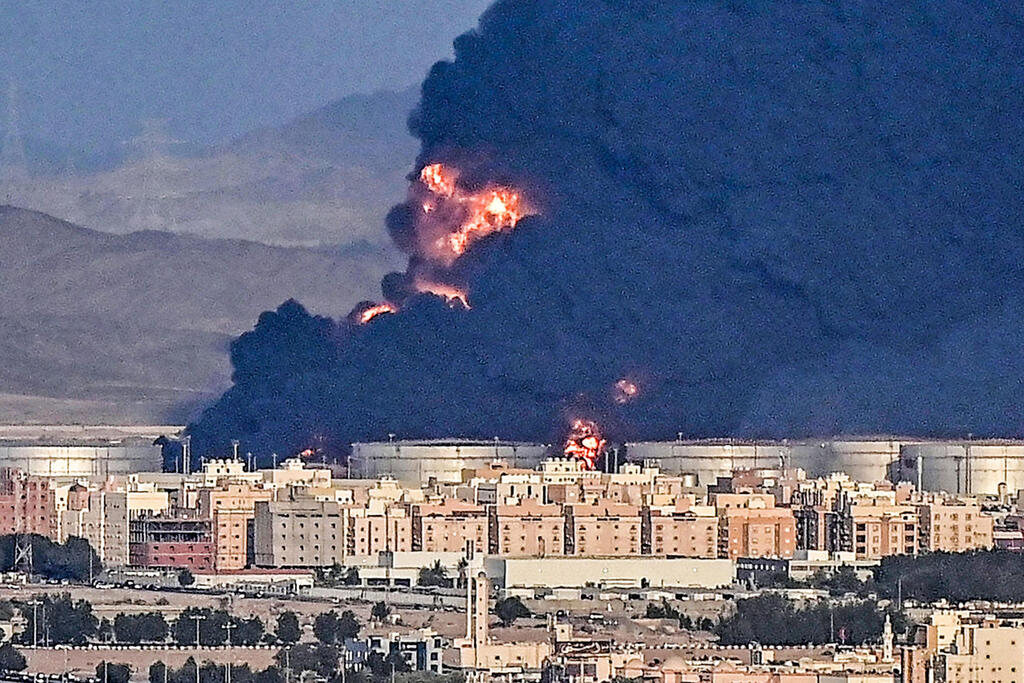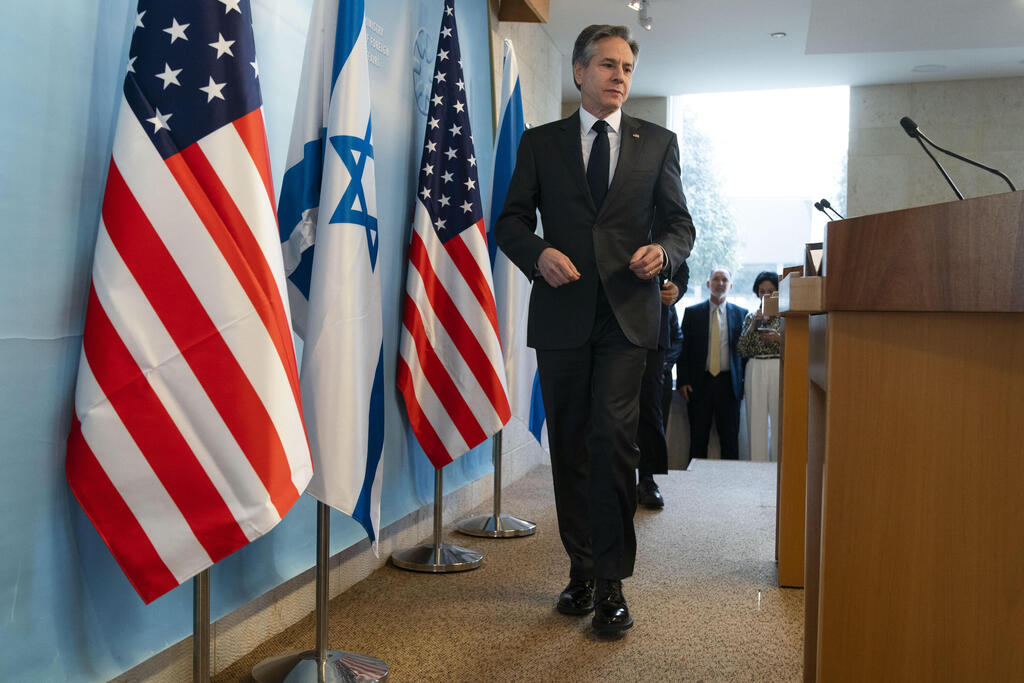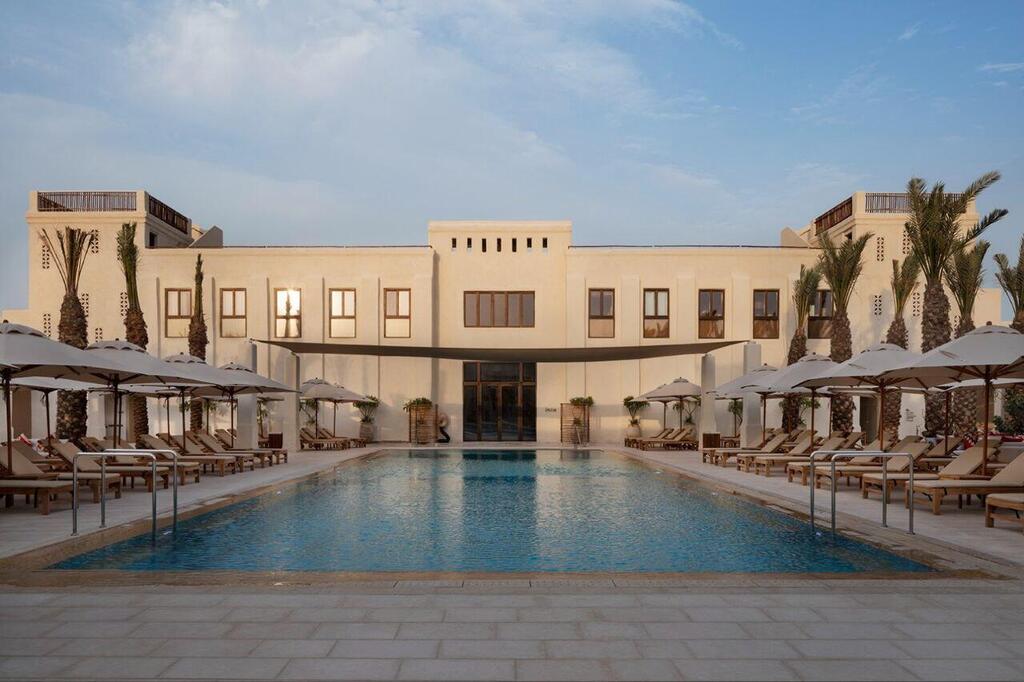Getting your Trinity Audio player ready...
U.S. Secretary of State Antony Blinken on Sunday tried to soothe the fears of Israel and its Gulf Arab allies ahead of the possible renewal of global powers' international nuclear deal with Iran during a press conference with Foreign Minister Yair Lapid.
Blinken made the comments shortly before joining his counterparts from Israel and four Arab countries at the Negev Summit where the Iranian nuclear deal was expected to top the agenda. Israel and many of its neighbors are fiercely opposed to the deal, which they believe with embolden and enrich Iran.
Yair Lapid and Antony Blinken in a press conference
(Video: GPO, Reuters)
"When it comes to the most important element, we see eye-to-eye," Blinken told a news conference with Foreign Minister Yair Lapid in Jerusalem. "We are both committed, both determined that Iran will never acquire a nuclear weapon."
Blinken added the U.S. believes that restoring the nuclear deal "is the best way to put Iran's program back in the box it was in." He added: "Our commitment to the core principle of Iran never acquiring a nuclear weapon is unwavering."
Lapid for his part said that "Israel will do anything we believe is needed to stop the Iranian nuclear problem".
When asked about the IRGC being removed from the U.S Foreign Terrorist Organization (FTO) list, Blinken dodged the question, briefly pointing to the sanctions imposed on the group.
Prime Minister Naftali Bennett, however, made sure to acknowledge this topic in the beginning of weekly cabinet meeting. "The thought that this organization will be delisted from the FTO is very concerning, and not just to us. We're still hoping and acting so that this won't happen".
Lapid opened the press meeting by condemning the Russian the invasion of Ukraine and added that Israel has been providing humanitarian assistance to the war-rabaged country. He added that "Iran is not an Israeli problem" and the world "cannot afford a nuclear Iran, the world cannot afford for the IRGC to continue spreading terror around the globe".
According to Lapid, "Israel will do anything we believe is needed to stop the Iranian nuclear problem, anything. From our point of view, the Iranian threat is not theoretical, the Iranians want to destroy Israel. They will not succeed. We will not let them".
Lapid later spoke of the Negev Summit that will take place later in the day. "Later today the two of us will south for the historic Negev Summit with the Arab foreign ministers. The relations between the two countries are strong. It's a strong alliance, that shares common values".
The Secretary of State also condemned the recent Houthi attacks on Saudi oil facilities, saying that "beyond its nuclear efforts, Iran continues to engage in a whole series of destabilizing activities... the U.S. will continue to stand up to Iran when its threatens us or when it threatens our allies and partners”.
Blinken also condemned the deadly terrorist attack in Be'er Sheva last week, which claimed the lives of four people, and sent his condolences to the victims' families.
“We are fully committed to expanding cooperation through the Abraham Accords”, said Blinken, adding the meeting will include talks about energy development and global cooperation between businesses, artists, and students. "Normalization is becoming the new normal," he said.
Bennett during the cabinet meeting said Israel "is an important player on the international field and the region, and is cultivating old relations and building new bridges".
"We're making more and more content within these relations in order to create connections between the moderate states of the Middle East. I'm happy to see the continuation of this trend, including in the meeting in Sde Boker. The Arab world is understanding more and more that Israel is and always will be on the side of peace and cooperation".
Antony Blinken landed in Israel on the night between Saturday and Sunday after visiting Warsaw with U.S. President Joe Biden. Blinken is also meant to meet separately with President Isaac Herzog, Defense Minister Benny Gantz, and Palestinian President Mahmoud Abbas.
Aside from Blinken and Lapid, the summit in Sde Boker will include foreign ministers of the UAE, Bahrain, Morocco, and Egypt, The ministers are set to land in Israel on Sunday afternoon and will make their way to the Isrotel Kedma Hotel, where the talks will take place.
The six ministers will have dinner together, in hopes of "creating an informal atmosphere" like in the Camp David Accords, said Israeli sources.
The foreign ministers' official meeting will take place on Monday at 10am, and is expected to be long.





